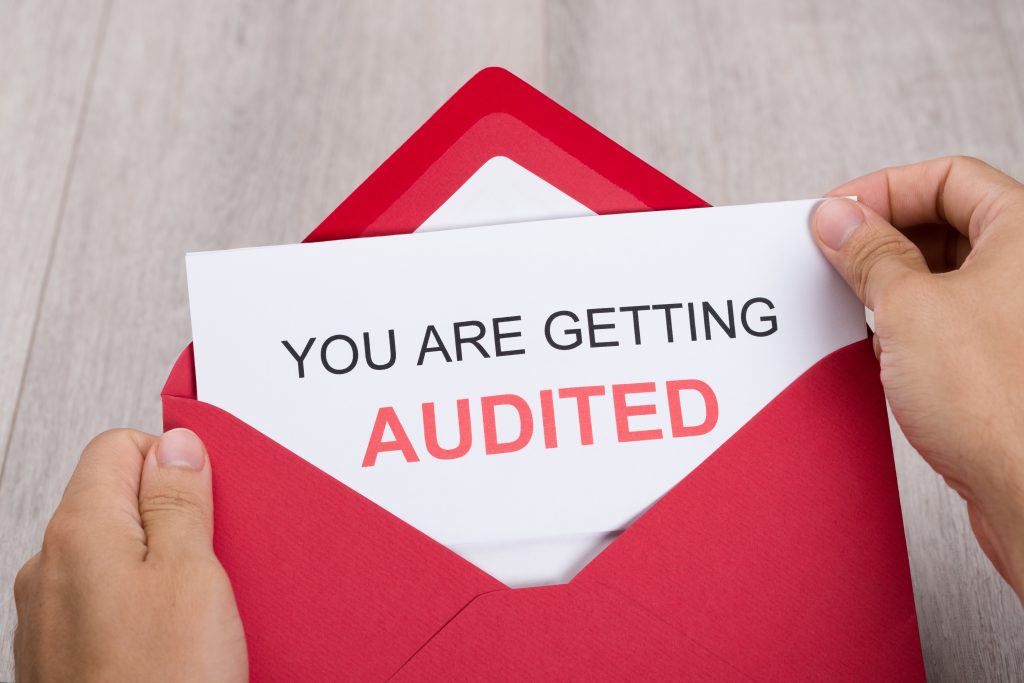Navigating the Rising Tide of ERC Audits: Safeguarding Your Business with Expert Guidance
The IRS has announced its plan to audit a large number of Employee Retention Credit (ERC) claims that officials believe may be fraudulent, and many business owners have already been targeted for ERC audits. Officials have warned multiple times about third-party tax credit specialists improperly filing ERC credits on behalf of unknowing clients, and many of these claims could lead to potential penalties for business owners. Amid a landscape of increasing IRS scrutiny, Enrolled Agents can help protect their clients by recommending they review their ERC filings ahead of the IRS to help avoid tax penalties that could be levied in an ERC audit.
The Employee Retention Credit (ERC) is a refundable tax incentive intended to help small and medium-sized businesses survive the pandemic. Passed in early 2020 as part of the CARES Act, the ERC was initially designed to help companies continue paying employees during the COVID-19 pandemic.
Multiple IRS Warnings of ERC Fraud
In late 2022, IRS officials began issuing warnings to small businesses regarding the Employee Retention Credit, stating that some third-party ERC processing companies, or “ERC mills,” have fraudulently claimed or overclaimed tax credits for their clients.
Businesses qualify for the credit by meeting specific criteria including undergoing full or partial suspension of operations due to government mandates or a significant decline in gross profits during the years 2020 or 2021.

In many cases, questionable “ERC mills” have misled honest business owners by advising them to apply for ERC credits even if they do not meet the standards set out by the IRS. In other cases, these popup providers didn’t do their due diligence to document their clients’ qualifications or may have overclaimed their refund amounts. While putting these small businesses at greater ERC audit risk, these third-party providers often charge hefty upfront fees or take a large percentage of an anticipated refund amount, decreasing the company’s overall benefit and setting them up for tax issues down the road.
The IRS has renewed its ERC scam warning repeatedly over the first half of 2023, even placing these tax cheat tactics atop the new Dirty Dozen list.
Many Enrolled Agents and other tax advisors are concerned their clients may have used one of these third-party processors that turned out to be an ERC mill and are actively looking for resources to identify risks associated with their clients’ ERC filings. Fortunately, there are professionals offering guidance for reviewing ERC compliance before the IRS launches an audit.
Will ERC Claims be Audited?
The IRS is auditing ERC claims more frequently in response to the prevalence of abuse, scams, and fraud. Officials deem ERC compliance a high enforcement priority, increasing the number of Employee Retention Credit audits they will undertake and violations they will pursue.
Businesses that claimed ERC using a third party who did not provide them with a detailed study to document the calculation methodology or substantiate the ERC claim could be at risk of penalties if they are selected for an ERC audit.
IRS Begins Issuing IDRs
Regarding ERC Claims In addition to the Employee Retention Credit fraud outlined above, many companies are finding that their ERC provider did not provide the proper documentation to back up their claim. This spells trouble for businesses that do not have substantiation of their ERC’s validity. The IRS will send an Information Document Request (IDR) to employers targeted for Employee Retention Credit audits.
What Documentation Is Needed in an ERC Audit?
When a company receives an IDR regarding its ERC, the list of requested documentation is extensive. Accounting professionals can work with their clients to ensure they have the necessary documentation on hand.
When a business is targeted for an ERC audit, it may be asked to produce the following records with only 10 business days to reply:
- Employee and owner records
- Payroll data
- Gross receipts for 2019-2021
- Previously filed tax forms
- The names of all parties with interest (ownership) in the business
- A detailed calculation of the ERC credit for each employee
- Notices of operational suspension during the eligibility period
- Copies of relevant Covid Orders used to justify a full or partial suspension of operations
- Paycheck Protection Program (PPP) application and loan forgiveness documentation.
If a business owner cannot produce these records upon receiving an IDR, they may quickly land in hot water with IRS auditors.
How Long Can the IRS Audit ERC?
The IRS recently extended the statute of limitations on ERC refunds by two years, giving itself a total of five years to conduct audits on businesses that may lack proper documentation proving their eligibility. Those businesses that have or will be applying for the ERC before it ends in 2024 (for 2020) and 2025 (for 2021) must file amended tax returns (941x) for any taxes already submitted. There is also no time limit for the IRS to audit what they believe to be false or fraudulent ERC claims intentionally filed to evade employer payroll taxes.
This extension to the ERC audit period indicates the IRS has a special interest in auditing Employee Retention Credit claims and highlights the need for business owners to review the validity of their claims.
What the IRS Examines in ERC Audits
When auditing ERC claims, the IRS will look at three primary areas: eligibility, confirmation of the claimed refund amount, and whether an amended tax return was filed. For eligibility, they will want to see copies of government orders that required a partial or complete shutdown of business, including:
Health restrictions
Documented evidence that key suppliers were shut down due to a government order, meeting the IRS’ definition of supply chain suspension Closure schedules Documentation proving a 10% nominal disruption to business operations For the claim amount, they will need to see how calculations were arrived at, the impact of the pandemic on company revenue, and proof of employee eligibility. Finally, IRS auditors will look at all the supporting documentation relating to the ERC filing.
What It Could Cost
If your small business is audited and the amount of the ERC credit is reduced, the ERC audit penalty may range from 20% for inaccuracies to 75% if the IRS believes it was intentional fraud. In the most egregious cases, the IRS could pursue criminal fraud charges that include both ERC penalties and imprisonment.
Being Ready for a Potential ERC Audit
The best way for accountants and advisors to help their clients prepare for a potential ERC Audit is to have a professional doublecheck their claims for ERC compliance. By reviewing the needed documentation, a professional can help clarify the situation for business owners, ensuring that your clients do indeed meet eligibility requirements, that the credit amounts were properly calculated, and that they possess all necessary documentation to substantiate their claims.
Review Your ERC Filing with Propono’s Experts
Propono provides a comprehensive analysis of existing ERC claims, reviewing filings for adherence to all qualifications and IRS rules, and identifying any potential liabilities or errors. Once the analysis is completed, Propono provides a thorough report outlining any inaccuracies, areas of concern, or red flags in the work of the initial ERC processor. This allows small businesses to correct errors or further substantiate their claims ahead of a potential audit, thus avoiding tax penalties.
The ERC Filing Review is a proactive step that companies can take to find inaccuracies or mistakes before the IRS does. Propono’s team helps each business review its existing documentation and determine if additional information is needed to back up its filing. They will also confirm the ERC claim and determine if a new amended return is needed, pre-empting any such discovery by the IRS.
Now is the time for small businesses to reexamine their ERC claims and ensure the work done by their ERC processor. CPAs, business advisors, and tax professionals who believe their clients may have claimed ERC under questionable circumstances should recommend they review their filings with the ERC specialists at Propono.


